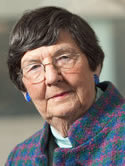Social support as a buffer to the psychological impact of stressful life events in women with breast cancer Journal Article
| Authors: | Kornblith, A. B.; Herndon, J. E. 2nd; Zuckerman, E.; Viscoli, C. M.; Horwitz, R. I.; Cooper, R. M.; Harris, L.; Tkaczuk, K. H.; Perry, M. C.; Budman, D.; Norton, L.; Holland, J. C.; for the Cancer and Leukemia Group B |
| Article Title: | Social support as a buffer to the psychological impact of stressful life events in women with breast cancer |
| Abstract: | BACKGROUND. Three theoretical models by which social support may influence the impact of stressful life events on cancer patients' psychological state were tested: 1) the additive model, in which social support and stressful life events each directly influence cancer patients' adjustment, irrespective of the magnitude of the other; 2) the buffering hypothesis, in which stressful events occurring in the presence of social support should produce less distress than if they occur in its absence; and 3) both additive and buffering models. METHODS. One hundred seventy-nine patients who had Stage II breast cancer (median age, 56 yrs; 68% disease free), treated a mean of 6.8 years since entry to Cancer and Leukemia Group B (CALGB) 8541, were interviewed by telephone concerning their psychosocial adjustment. The following measures were used: Medical Outcome Study Social Support Survey (MOS-SSS), Life Experience Survey (LES) a measure of stressful life events within the past 12 months, European Organization for Research on the Treatment of Cancer (EORTC QLQ-C30) a measure of quality of life, Mental Health Inventory (MHI), and the Systems of Belief Inventory (SBI) a measure of spiritual and religious involvement. RESULTS. Hierarchical regression analyses revealed that less than excellent levels of social support (P < 0.01), greater negative impact of LES fateful life events (e.g., death of family member) (P < 0.05), personal illness or injury (P < 0.05), and all other negative life events in the past year (< 4; P < 0.01) were significant predictors of greater MHI psychological distress, in addition to being divorced or separated (P < 0.001), and more recently treated for cancer on CALGB 8541 (P < 0.05). The interaction of LES scores with MOS-SSS or SBI social support, used to test the buffering hypothesis, did not significantly improve the prediction of MHI psychological distress. CONCLUSIONS. The results supported the additive model, with both stressful life events and social support independently and significantly affecting patients' emotional state. However, the level of social support needed to be very high to reduce the likelihood of severe psychological distress. © 2001 American Cancer Society. |
| Keywords: | adult; controlled study; treatment outcome; aged; middle aged; major clinical study; doxorubicin; fluorouracil; cancer patient; cancer staging; neoplasm staging; quality of life; cyclophosphamide; breast neoplasms; models, theoretical; patient care; social support; breast carcinoma; distress syndrome; emotion; stress; regression analysis; patient attitude; religion; mental health; life event; life change events; socioeconomic factors; stress, psychological; social psychology; family; emotional stress; adjustment; humans; human; female; priority journal; article |
| Journal Title: | Cancer |
| Volume: | 91 |
| Issue: | 2 |
| ISSN: | 0008-543X |
| Publisher: | Wiley Blackwell |
| Date Published: | 2001-01-15 |
| Start Page: | 443 |
| End Page: | 454 |
| Language: | English |
| DOI: | 10.1002/1097-0142(20010115)91:2<443::aid-cncr1020>3.0.co;2-z |
| PUBMED: | 11180093 |
| PROVIDER: | scopus |
| DOI/URL: | |
| Notes: | Poster and abstract presented at the 35th Annual Meeting of the American Society of Clinical Oncology; 1999 May 15-18; Atlanta, GA --- Export Date: 21 May 2015 -- Source: Scopus |
Altmetric
Citation Impact
BMJ Impact Analytics
Related MSK Work





